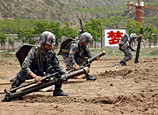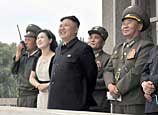
Edited and translated by Zhang Qian, People's Daily Online
Following the exposure of the Prism program, the U.S. government has sought to do three things:
The first is to emphasize the necessity of the secret monitoring program. A spokesman for the U.S. government and other senior officials have repeatedly defended the program and tried to claim that the project has helped the National Security Agency to detect and foil dozens of terrorist plots. U.S. President Obama himself has personally insisted that the project serves only as a counter-terrorist measure to ensure the safety of Americans, and he has stated that he is ready to explain the program to European leaders at the G8 summit.
The second is to convince both its domestic and its international audience of the reasonable goals of the Prism program. The government has cited the Patriot Act to justify its legitimacy, and has asserted that protective measures were in place to prevent monitored data from being abused. It has tried to distinguish the Prism secret surveillance project from so-called "Chinese cyber attacks", claiming that there is no resemblance between the two. According to the US account the purpose of the former is "to monitor and track people who want to do evil", while the latter equates to "China stealing commercial and military secrets”.
The third is an intention to eventually extradite Snowden and bring him back to America to stand trial. In the eyes of American officials, Snowden’s disclosures concerning the confidential Prism program represent a serious breach of American law. The U.S. has not yet cited the judiciary assistance agreement with Hong Kong as a means to extradite Snowden. But it has been busy making its preparations to this end in terms of both public opinion and legal grounds.
Obviously, if we look at the response of the U.S. government to the Prism disclosures, its first priority was to “put out the fire”. No doubt it has moved on to consideration of what lessons are there to be learned, and how to prevent anything similar from occurring in future. It does not seem at all inclined to call into question the Prism program itself.
But no matter what defenses are lodged on behalf of the program, no matter what domestic legal basis is used, no matter what means are employed to embellish its motives, two fundamental problems refracted by the Prism program cannot be ignored.
Firstly, the internal inconsistency of the U.S. government has been exposed to the public eye.
Americans care deeply for their privacy, and the American government makes a great show of protecting civil liberties. Following the psychological impact of 9/11, the public accepted some significant government restrictions on a number of civil rights in the name of “counter-terrorism". But according to Snowden, the American government has been exerting all the power of its technology and its authority to monitor a vast range of private information. A significant sector of the U.S. media now believes this monitoring has extended far beyond the needs of anti-terrorism and into the domain of infringement of the citizen’s right to privacy. Whether the public will accept this level of infringement remains very much to be seen.
Secondly, the U.S. applies an obvious double standard.
In recent years, and even more so in recent months, the U.S. government and the general public have been engaged in a campaign of “China-bashing” on the subject of network security. The objective has been to seize the moral heights in terms of the network space issue. Even after the disclosure of the Prism program, the U.S. still tries to defend large-scale hacking of other countries’ data. As is the case with counter-terrorism, the U.S. is ever ready to classify the "Internet attack" as being "good" or "bad" according to its own interests.
The Prism program exposes the hypocritical element of U.S. domestic and foreign policy for all to see. How many similar U.S. actions remain undetected and undisclosed? The U.S. government had no hesitation in distorting the truth over the war on terror in general, and over the war in Iraq in particular. This misleading of the public has done serious damage to its national image. The U.S. counterterrorism strategy was intended to improve public security, but if it has been seriously abused there will be instead an increase in public anxiety, and a loss of confidence and trust in government policy. How will the U.S. government defend itself in front of an international audience, if it is riven with internal discord?
How to deal with Snowden’s presence in Hong Kong presents a delicate problem for both China and the U.S. But if handled sensitively, it could be converted into a small opportunity for China-U.S. relations. While China for the time being has chosen a low-key response to the Prism affair, and proposes a calm and objective assessment of the related issues, it has made clear that the application of double standards is not conducive to resolving the problems of network security, and that countries should build peaceful, secure, open and cooperative network space through dialogue and communication.
With the Prism program exposed, a choice between dialogue and cooperation or deceit and confrontation on the network security problem will put to the test America’s policy towards China, and have a significant impact on China-U.S. relations.
Read the Chinese version: 美国“棱镜”折射了什么; Source: People's Daily Overseas Edition; Author: Jia Xiudong
















 Shocking! Hairy stocking to beat sex harassment
Shocking! Hairy stocking to beat sex harassment


![]()
